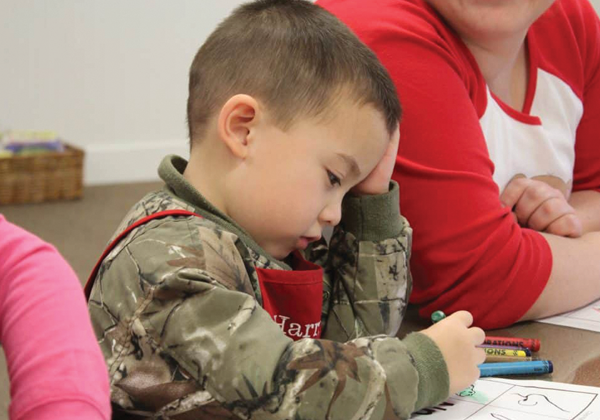All parents want their children to be happy. Yet how do you achieve happiness? One might say that responsibility and hard work help build happiness. When you work hard to achieve your goals, and feel fulfilled because your life has meaning, that’s a great definition of happiness.
In teaching children hard work, what we are really talking about is building self-confidence and perseverance even when something is difficult. Teaching children hard work also encourages children to try new things, because nothing is easy the first time you try it. Here are some tips on teaching children the value of hard work.
Praise the effort more than the accomplishment. If a child is praised more for being naturally good at doing a handstand than when they work hard but fail at the monkey bars, they’re learning that better outcomes come from doing things that are easy. Instead, praise your child when he or she tries again after failing, or when you see them practicing a skill over and over. This will help your child learn that hard work, effort, and practice is valued as much as the actual outcome.

Give specific praise. “Good job” doesn’t teach a child exactly what they did right. When you praise your child, be specific about what you saw and what you would like them to continue doing. “I like how you didn’t give up even after you fell off the monkey bars. I can see you swinging your body and keeping your head up. You can do it!” Effort-specific praise lets your child know that you notice the work they are putting in and positively reinforces that effort.
Coach your child instead of taking over.
A coach’s job is to help develop skills. Instead of jumping in to finish something when your child struggles, ask yourself what tool, thought, or mindset can help your child be successful. This will require patience on your part. Consider a child struggling to buckle the seatbelt because the jacket keeps getting caught.
Poor response: “Here, just let me do it.”
This signals that you don’t think they are capable.
Okay response: “Move your jacket out of the way first.”
Identifies the problem for your child and tells them how to solve it.
Best response: “Try looking at the buckle to see if something is blocking it.”
Coaches your child to identify the problem and figure out a solution.
Turn it into a game. If your child is getting frustrated and wants to give up, sometimes it’s time to get creative to keep the work fun. Is your child frustrated at cleaning their room? Keep them engaged with “Room Olympics”, including basketball dirty laundry, a clothes folding contest, and organized toy tossing. Competition against time is another fun example, “Let’s work together and see if we can clear the parlor in under five minutes. Ready? Go!”
“Good job” doesn’t teach a child exactly what they did right. When you praise your child, be specific about what you saw and what you would like them to continue doing.
Show by example. Tell your children stories of times when you thought about giving up but decided to try again instead, or about a mistake you made and how you solved the problem. Also encourage your children to talk to you about things in their life that they work hard at. These conversations help fuel the thought processes behind hard work and determination.
Teach them to ‘work smarter’. Sometimes hard work includes finding easier ways to do a task. It’s not considered laziness, but rather showing them how to problem solve and innovate. Is it taking forever to pick up all the legos one by one? Improvise a cardboard box to scoop large piles at once. Ask a child, “Is there an easier way to do that?” and you might be surprised at just how creative they can get.








